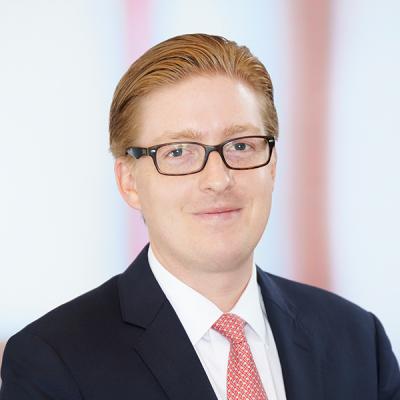First Circuit Adopts “But-For” Causation Standard for False Claims Act Cases Based on Anti-Kickback Statute Violations
In United States v. Regeneron Pharmaceuticals, Inc., the First Circuit joined the emerging majority view that False Claims Act (FCA) claims based on violations of the Anti-Kickback Statute (AKS) require a showing of “but-for” causation. As we previously reported, the Sixth Circuit and the Eighth Circuit have also held that the stricter “but-for” causation standard applies to AKS-based FCA claims.
The FCA imposes civil liability on anyone who “knowingly presents, or causes to be presented, a false or fraudulent claim for payment” by the government. 31 U.S.C. § 3729(a)(1)(A). One common theory of FCA liability is based on violations of the AKS. Under a 2010 amendment to the AKS, a claim for payment by a federal health care program that “includes items or services resulting from a violation” of the AKS constitutes a “false or fraudulent claim” under the FCA. 42 U.S.C. § 1320a-7b(g). The issue in Regeneron was thus what standard of causation is required to satisfy the “resulting from” language in the AKS.
The causation issue in Regeneron arose from a drug manufacturer’s contributions to a copayment assistance program. Regeneron manufactures a drug called Eylea, which is used to treat an eye disease common in elderly people (neovascular (wet) age-related macular degeneration, known as “wet AMD”). Eylea is covered by Medicare. The government alleged that Regeneron funded an independent charitable foundation (the Chronic Disease Fund) which, in turn, subsidized patient copayments for Eylea. The government contended that the Chronic Disease Fund provided copay assistance to wet AMD patients, covering copays, deductibles, and co-insurance for Medicare patients who were prescribed wet AMD drugs including Eylea. In the government’s view, Regeneron’s contributions to the Chronic Disease Fund—which covered or subsidized patient copays for Eylea—violated the AKS and thus gave rise to FCA liability. Regeneron countered that, if a doctor was going to prescribe (and submit a reimbursement claim for) Eylea either way, regardless of any copay assistance, then that claim did not “result from” a violation of the AKS.
Interpreting the language of the AKS, the First Circuit held that “resulting from” imposes a requirement of actual causality. Actual causality generally means that the alleged harm would not have occurred but-for the defendant’s conduct. The First Circuit then considered and rejected various arguments raised by the government that the “resulting from” language of the AKS imposed a lesser “causal connection” standard. Nothing in the statutory text, statutory history, or legislative history of the AKS refuted the “default assumption” that the phrase “resulting from” imposes a requirement of “but-for” causation. As such, the statutory “resulting from” language requires the government to prove that an AKS violation was the but-for cause of a false claim.
Implications
The First, Sixth, and Eighth Circuits have now held that the higher standard of “but-for” causation applies to FCA claims based on AKS violations. It remains to be seen whether any other circuits will endorse the minority view, adopted by the Third Circuit, that a lesser causal connection is all that is required for AKS-based FCA claims. If the government petitions for certiorari in Regeneron, it is possible that the Supreme Court may weigh in to resolve the circuit split. The government’s certiorari decision in Regeneron may be an indicator of the new Administration’s appetite for pursuing FCA claims.
Either way, establishing “but-for” causation is not the only path for the government (or relators) to allege AKS violations as a basis for FCA liability. As the First Circuit noted in Regeneron, FCA liability may also arise where a defendant presents (or causes to be presented) a claim that misrepresents compliance with a “statutory, regulatory, or contractual requirement” that the defendants “knows is material” to the government’s payment decision. Universal Health Servs., Inc. v. United States, 59 U.S. 16, 181 (2016). This is commonly known as the “false-certification” theory of liability. The false-certification theory turns on a material misrepresentation of compliance with the AKS, and thus the heightened “but-for” causation standard is not at issue in false-certification cases. See Regeneron, --- F.4th ----, 2025 U.S. App. LEXIS 3667, at *21 (1st Cir. 2025) (nothing in the AKS “requires proof of but-for causation in a false-certification FCA case.”). Because proving “but-for” causation is a high bar, Regeneron may signal a resurgence in express and implied false-certification cases in the future.




